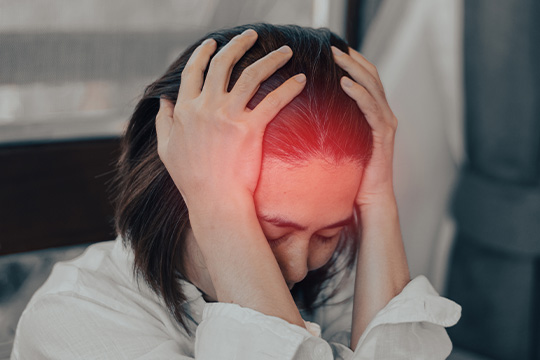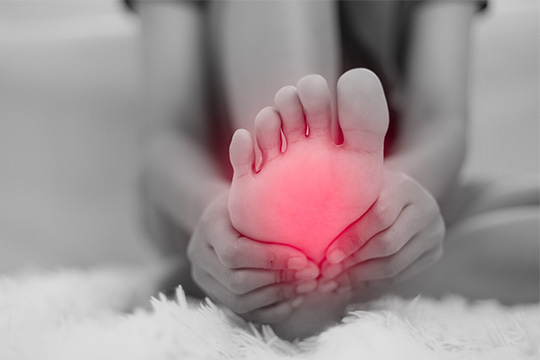Home > Disease and Treatments > Parkinson’s Disease- Symptoms, Treatments And Advancement
Parkinson’s Disease- Symptoms, Treatments And Advancement
Parkinson‘s disease is a long term and progressive neurological disorder that fundamentally affects movement control. It is characterised by a wide range of motor and non-motor symptoms that gradually worsen over time. The disease results from the degeneration of dopamine-producing neurons in the brain, particularly in an area called the substantia nigra. Dopamine is a neurotransmitter that plays a crucial role in assist smooth, synchronized movements.
Motor symptoms of Parkinson's disease include:
Tremors Involuntary shaking, often seen in the hands, fingers, or other parts of the body, especially when at rest.
Bradykinesia Slowness of movement, which can lead to reduced facial expressions, difficulty initiating movement, and overall sluggishness.
Muscle Rigidity Stiffness of muscles, causing discomfort and resistance to movement, often leading to decreased range of motion.
Postural Instability Difficulty maintaining balance and an increased risk of falls due to impaired coordination and muscle control.
Non-motor symptoms may include:
Depression Feelings of sadness, loss of interest, and changes in mood.
Sleep Disorders Disturbed sleep patterns, including insomnia and daytime sleepiness.
Cognitive Changes Difficulties with memory, attention, and problem-solving may emerge in later stages.
Speech and Swallowing Issues Changes in speech patterns, such as reduced volume or slurred speech, along with swallowing difficulties.
Autonomic Dysfunction Problems with involuntary bodily functions, leading to issues like constipation, urinary problems, and changes in blood pressure.
Standard treatments
Standard treatments include Parkinson's disease medications like levodopa , MRgFUS and dopamine agonists, which strive to replenish dopamine levels. Additionally, therapies like physiotherapy are integral, aiding in maintaining mobility and countering muscle rigidity. The revolutionary technique of deep brain stimulation (DBS) involves implanting electrodes to regulate abnormal brain activity and manage symptoms effectively.
MRgFUS (MRI-guided focused ultrasound) : Provides ablative treatment via MRI guidance. To alleviate some symptoms associated with Parkinson's disease. Currently, it is approved for treating essential tremors. This new treatment method for Parkinson's disease patients to reduce tremors (MRgFUS) provides treatment options that don't require invasive procedures.
During the procedure, focused ultrasound waves destroy abnormal brain tissue that causes tremors in patients with Parkinson's or Essential Tremors. There is immediate relief and the patient can get down with an enhanced lifestyle as the troublesome tremors are stopped as soon as the procedure is completed.
Levodopa : Converts to dopamine in the brain, helping to reduce movement-related symptoms. Dopamine Agonists:impersonate the effects of dopamine in the brain. MAO-B Inhibitors: Block enzymes that break down dopamine, preserving its levels. COMT Inhibitors: Extend the effectiveness of levodopa by inhibiting dopamine breakdown.
Deep Brain Stimulation (DBS)-This surgical procedure involves implanting electrodes into specific brain areas responsible for motor control. These electrodes are connected to a pulse generator, which emits controlled electrical impulses, regulating abnormal brain activity and reducing motor symptoms.
Physiotherapy-Physiotherapy focuses on maintaining mobility, improving posture, and enhancing muscle strength. It can help manage stiffness, rigidity, and balance issues associated with Parkinson's disease.
Occupational Therapy-Occupational therapists help individuals adapt to challenges in daily activities and routines. They offer strategies to improve fine motor skills, handwriting, and activities of daily living.
Speech Therapy-Speech therapists address speech and swallowing difficulties that may arise due to muscle rigidity and impaired vocal control. Exercises and techniques can help improve communication and prevent aspiration.
Lifestyle Modifications -Regular exercise, a balanced diet, and maintaining a healthy lifestyle can contribute to overall well-being and potentially slow the progression of the disease.
As a progressive disorder, its symptoms gradually evolve over time, affecting both motor and non-motor functions. However, with advancements in medical science, there is hope. At Royal Care Hospital, we are dedicated to providing the best care and treatment options for individuals dealing with Parkinson's disease.
Our multidisciplinary approach encompasses medication, therapies, and lifestyle modifications tailored to each patient's unique needs. From standard treatments like medications and physiotherapy to innovative techniques such as deep brain stimulation, we offer a range of interventions to address various aspects of the disease.
Disclaimer: This is general information about the disease and treatment options, please consult a specialist doctor for right diagnosis and treatment which may vary based on each patient. Book an appointment with your specialist to know further.
Appointments must be made 24 hours in advance.
Book an AppointmentRECENT BLOGS

Cardiovascular disease remains the leading cause of mortality worldwide, accounting for ne...
Read More
Headaches are among the most common ailments people experience, but not all headaches are ...
Read More
Living with diabetes means taking extra care of your health and one of the most important ...
Read More
